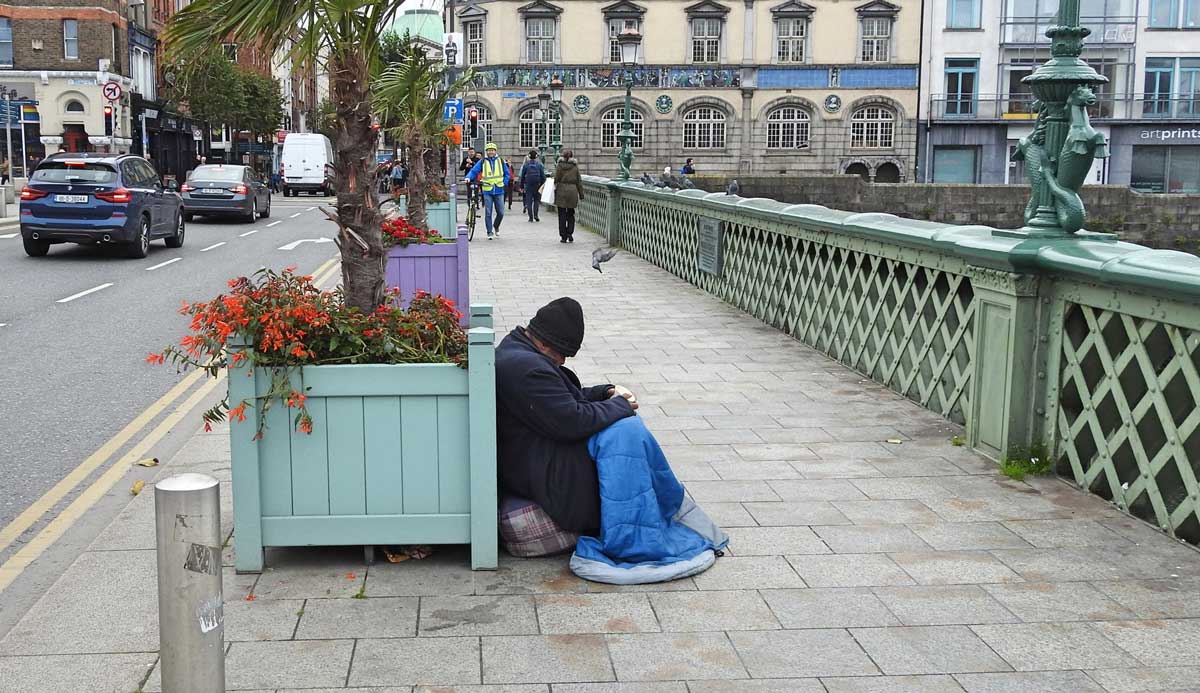Targeting homelessness
A vision for ending homelessness in Ireland by 2030

STRATEGY
Image: Istock

David Carroll
CEO, Depaul
In March 2020, homeless service providers braced themselves for what was ahead. As one of the key providers of temporary accommodation for single people and families with complex needs in Ireland, Depaul did not know what to expect. How would COVID-19 affect the people who used our services – many of whom already had compromised health? Would we be able to support staff to keep services open? Yet within days of lockdown the whole sector was mobilised.
Depaul along with others was centrally involved in initiatives coordinated by statutory services to introduce a range of interventions to support those with a compromised health status. At one stage, we were supporting and managing 240 shielding beds in Dublin, as well as operating 384 temporary accommodation beds each night across Ireland. This resulted in minimal rates of infection, serious illness or death among homeless people.
Alongside these operational responses, the government introduced a ban on evictions from the private rented sector and a rent freeze. This decelerated the entry of households into homelessness, maintaining a downward trend in family homelessness. However, the number of single homeless people remained stubbornly high.
Being bold
This stage of the pandemic is a pivotal point. When minds are concentrated, change is possible. Now there must be a focus on ambition. If we are brave, a new vision is possible – one that leverages the learnings from the past 18 months and our experience of the crisis.
In July 2021, the government signed the EU Lisbon declaration on the European Platform on Combatting Homelessness which will work towards the ending of homelessness by 2030. This will only be meaningful if governments set national targets and are accountable. The European Union must examine its approach to structural funding to support the construction of large-scale social and affordable housing programmes.

A homeless person on Grattan Bridge, Dublin (Image: Istock)
Key issues
If Ireland is to achieve the 2030 goal, the imminent Housing for All policy is critical. It will set the template for housing and homelessness in Ireland for at least the lifetime of this government and possibly well beyond. The following are critical issues:
01
Housing supply for single people must be tackled.
The high level of single homelessness is due to the lack of small units available, particularly among social housing stock. We must radically increase government investment into the provision of social housing units, with targets for building smaller units and support to help Approved Housing Bodies overcome financial obstacles to building such units.
02
Strengthen estate management interventions to deal with the housing management issues that arise when single people with complex needs are housed.
Housing First principles must be delivered within a preventative framework, targeting those who have never entered homelessness but are at serious risk of doing so.
03
The additional investment from the Health Service Executive into homeless services during the pandemic must be maintained and increased.
COVID-19 has demonstrated incontrovertibly that health investment is critical in solving homelessness. We now have clear evidence that targeted investment not only saves lives, but leads to gains for the public purse by diverting people from expensive acute healthcare interventions.
04
The elimination of Direct Provision* is also critical.
We need to determine funding and delivery mechanisms for the provision of accommodation needed to support the new system for people seeking international protection. Strong interventions are required to support households emerging from this system if we are to prevent homelessness as a result of affordability or isolation.
*Direct Provision is a term used in Ireland to describe currently the first stage accommodation that refugees and asylum seekers are placed into.
05
This phase of the pandemic has proven that private rented sector intervention can work in preventing the flow of households into homelessness.
Recent changes to legislation to control rents must be monitored. The early optimism that rent inflation and supply may have been favourably affected has evaporated over the summer and it is time for a reassessment of the relationship between the state and the private sector in the provision of affordable housing – particularly for vulnerable households.
Momentum has been gained in tackling homelessness. Whether this is a temporary hiatus depends on what emerges from the government in the coming weeks. Let us not resign ourselves to a perceived acceptable level of homelessness – particularly for those with complex needs – and use the Lisbon Accord to finally address this issue of our times.
We can end homelessness in Ireland.


